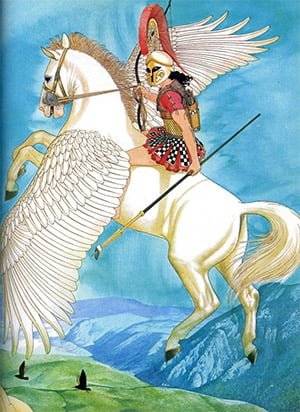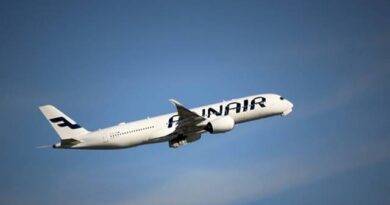The Desire to Fly in Greek Mythology: Lessons from Ambition and Hubris
In Greek mythology, flight is a powerful symbol of human ambition and the desire to transcend mortal limitations. Two key myths—those of Icarus and Daedalus, and Bellerophon and Pegasus—illustrate humanity’s yearning for freedom through flight, along with the dangers of hubris and overreach.
Icarus and Daedalus: The Perils of Hubris
The myth of Icarus and his father Daedalus is one of the most famous Greek stories about flight. Imprisoned in the labyrinth on Crete, Daedalus, a brilliant inventor, fashioned wings made of feathers and wax to escape. Before taking off, Daedalus warned his son not to fly too close to the sun, as its heat would melt the wax, or too close to the sea, which would dampen the feathers. Overcome with the thrill of flight, Icarus disregarded his father’s advice and soared too high. The sun’s heat melted the wax, sending Icarus plunging into the sea to his death (Encyclopedia Britannica, Encyclopedia Britannica, Mythology Vault).
The story of Icarus highlights hubris, the fatal pride that leads humans to defy natural limits. His flight is a timeless metaphor for unchecked ambition, emphasizing the importance of moderation and heeding wise counsel. It serves as a cautionary tale that resonates across generations, reminding us of the dangers of overconfidence (Mythology Vault).
Bellerophon and Pegasus: A Tale of Heroism and Arrogance
The story of Bellerophon presents a different yet related perspective on flight. Bellerophon was a hero who sought to defeat the Chimera, a terrifying, fire-breathing monster. To accomplish this, he needed to tame the immortal winged horse, Pegasus. With the guidance of the goddess Athena and the favor of Poseidon, Bellerophon succeeded in riding Pegasus and used his advantage of flight to slay the Chimera (Encyclopedia Britannica, Theoi, MythologySource).
After this triumph, Bellerophon became consumed by hubris. Believing he was worthy of ascending to Mount Olympus, the home of the gods, he attempted to fly Pegasus to the divine realm. In response, Zeus sent a gadfly to sting Pegasus, causing Bellerophon to fall from the sky. Unlike Icarus, who perished, Bellerophon survived the fall but was condemned to live out his life in misery, shunned by both gods and men (Theoi, MythologySource).
Bellerophon’s downfall reinforces the dangers of overreaching ambition and arrogance. His story teaches the importance of knowing one’s limits and respecting the boundaries between mortals and gods (MythologySource).

source: https://www.greekmyths-greekmythology.com/myth-pegasus-bellerophontes/
Symbolism of Flight in Greek Mythology
Flight in these myths represents both freedom and the inherent risks of pushing beyond human limitations. The wings of Icarus and the flight of Bellerophon symbolize the human quest for transcendence, but they also remind us that this quest, when driven by pride, can lead to devastating consequences (Encyclopedia Britannica, Theoi).
In Icarus’ case, flight is a direct metaphor for ambition untempered by caution, a youthful mistake that leads to his doom. Bellerophon’s flight with Pegasus, on the other hand, symbolizes the fine line between heroism and hubris—while his initial successes are a testament to his bravery and skill, his attempt to fly to Olympus becomes his downfall (Encyclopedia Britannica, MythologySource).
Modern Interpretations
Today, these ancient myths continue to resonate. The story of Icarus has been referenced in various cultural contexts as a symbol of overambition. His fall is often interpreted as a warning against the overconfidence that can accompany rapid success. Meanwhile, Bellerophon’s tale highlights the moral that arrogance in success can be just as dangerous as failure.
Both myths remind us that while human beings should aspire to greatness, there is a need for balance and an understanding of the limits that nature and the gods impose. The desire to fly, metaphorically and literally, represents the human spirit’s relentless pursuit of innovation, but these stories caution that ambition without humility can have dire consequences (Encyclopedia Britannica, Theoi).
Conclusion: The Dual Nature of Ambition
In both myths, the desire to fly represents a fundamental human urge to surpass boundaries and achieve greatness. However, both Icarus and Bellerophon reveal that ambition, when taken to extremes, can lead to tragedy. These stories have endured for millennia because they speak to a central truth of the human experience: ambition is a powerful force, but it must be tempered by wisdom, humility, and respect for natural limits (Encyclopedia Britannica, Mythology Vault, MythologySource).
References:
- Bullfinch, T. (1998). The age of fable: The illustrated Bulfinch’s mythology. Sterling Publishing Company, Inc.
- Hamilton, E. (2011). Mythology. Back Bay Books.
- Powell, B. (2008). Classical mythology. Pearson/Prentice Hall.
- Tripp, E. (1999). Crowell’s handbook of classical mythology. Thomas Y. Crowell Company.
- www.aviationfile.com


